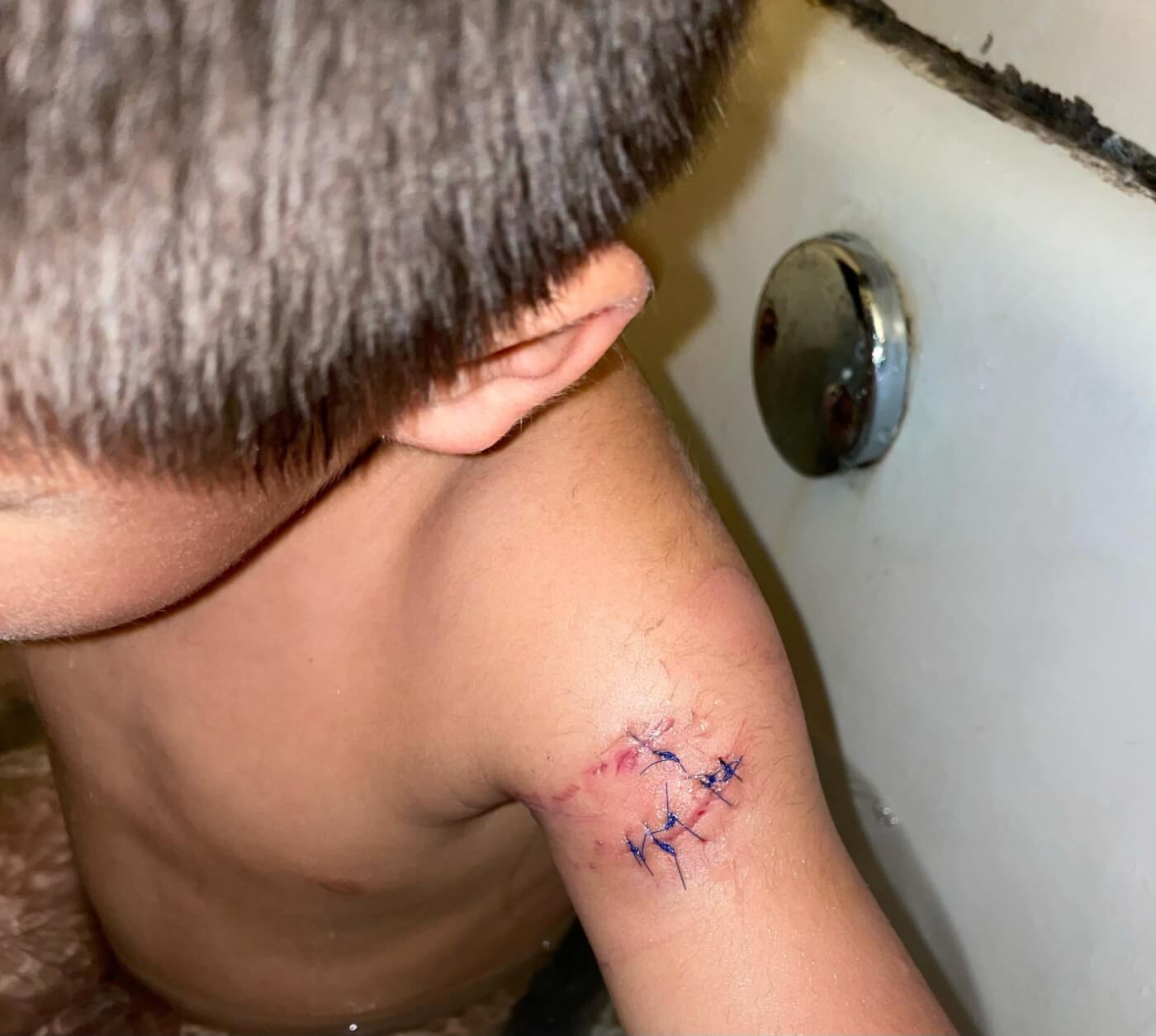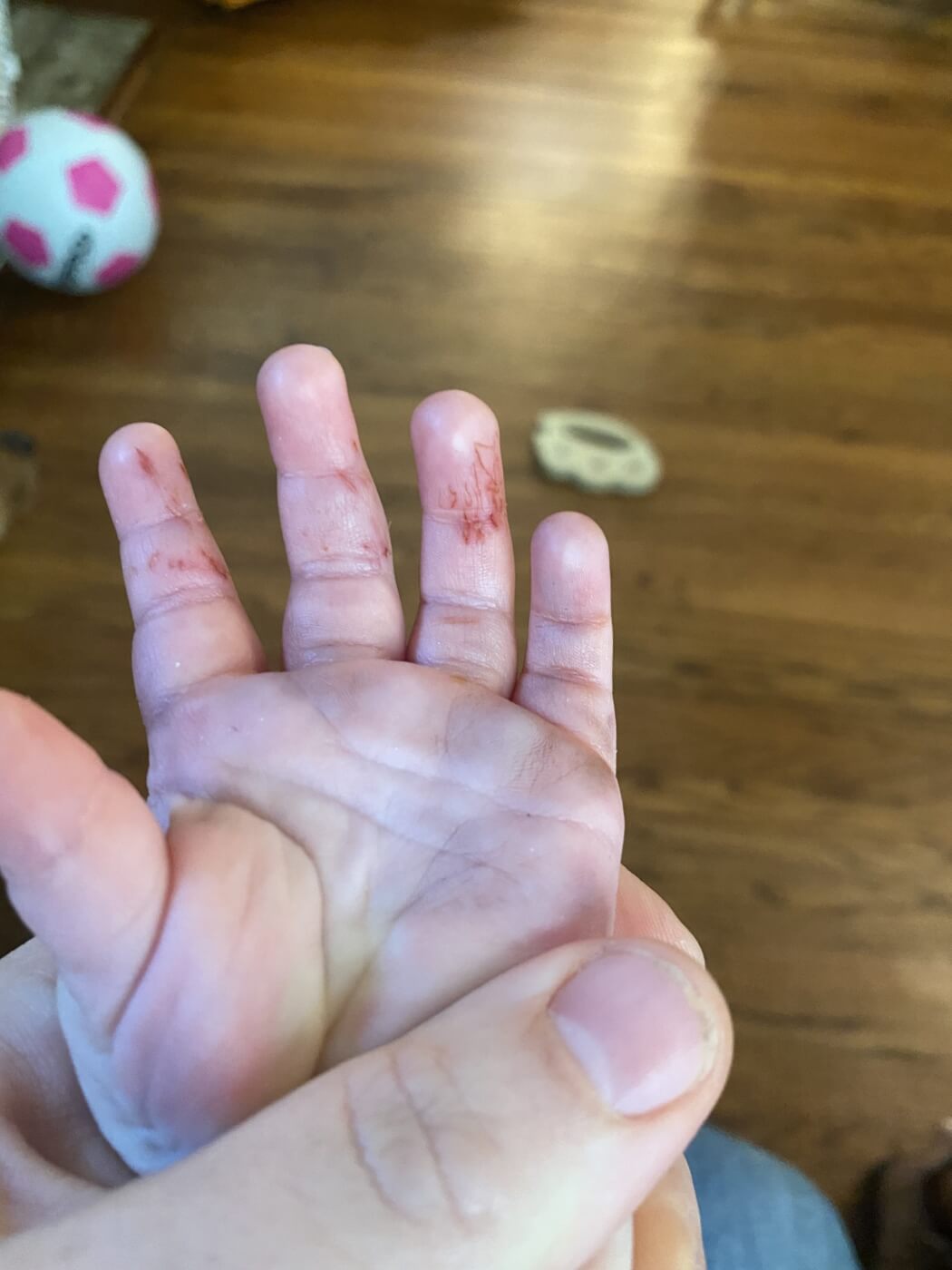PETA Files FTC Complaint Over Injuries to Visitors, Staff at SeaQuest Aquariums
SeaQuest is a chain of direct-contact shopping mall aquariums that confine wild animals to crummy enclosures for stressful public encounters with gawking humans.
Wild animals don’t want to interact with humans, and subjecting them to a barrage of unnatural, direct-contact encounters is not only stressful for them but also dangerous for everyone involved. To make matters worse, SeaQuest staff are demonstrably unfit to handle wildlife appropriately and often don’t closely monitor the public’s interactions with animals.
SeaQuest clearly knows all these things, as there have been many injuries to visitors and staff members at a number of its locations across the country, resulting in negative customer reviews and several federal citations.

But the company still hasn’t ceased its dangerous operations.
So PETA is pushing back yet again.
On December 5, we filed a massive complaint to the Federal Trade Commission (FTC), calling on the agency to investigate SeaQuest and the Austin Aquarium—another seedy indoor mall petting zoo—over unfair trade practices in apparent violation of federal law. Our groundbreaking complaint alleges that the companies promote dangerous, direct-contact encounters with wild animals, which have caused a substantial number of physical injuries to unsuspecting customers.
Many incidents have occurred at SeaQuest locations, including the following:
- At SeaQuest Littleton, a pufferfish bit an 8-year-old child; an Asian water monitor named Spartacus bit an employee; an iguana jumped onto a child’s chest and “got a claw inside her mouth”; an iguana jumped onto an employee’s shoulder and caught a nail under the person’s eye; iguanas have bitten visitors on multiple occasions; a pacu bit a child; a porcupine pufferfish bit a patron, who later reported numbness and difficulty breathing; and a pig bit a visitor, who reportedly had to go to urgent care.
- At SeaQuest Fort Worth, an iguana latched onto the arm of a 3-year-old boy, who had to be rushed to the hospital to receive stitches; a capybara bit the hand of a child who had reached over the side of an enclosure; a fish bit a toddler’s fingers; a sloth bit a visitor while staff weren’t fully monitoring the encounter; and an Asian small-clawed otter injured customers, even after the USDA cited the facility over previous injuries involving this animal.

- At SeaQuest Trumbull, a pig bit a customer’s finger, a kinkajou scratched a child’s face while jumping for a bowl of food, and an otter bit two children.
- At SeaQuest Utah, an Asian small-clawed otter bit a guests’ thumb, a kinkajou bit a guest, and a coatimundi named Gus bit a visitor and an employee.
- At SeaQuest Roseville, a sloth bit a guest during an encounter. That year, several of the animals at the facility were diagnosed with diseases that could spread to humans, including ringworm, chlamydia, and toxoplasmosis.
- At SeaQuest Las Vegas, a coatimundi reportedly scratched a boy, who was then taken to the hospital. In addition, a kinkajou bit an employee and a small-clawed otter named Chip bit an employee during a presentation.
PETA’s Urging the FTC to Take Action
The FTC Act prohibits unfair or deceptive trade practices. SeaQuest and Austin Aquarium market themselves as safe, family-friendly operations while encouraging customers to engage directly with wild animals, who can behave unpredictably and can potentially be carrying transmissible diseases. Customers continue to be injured by animals while engaging in activities that SeaQuest and the Austin Aquarium encourage.
PETA’s complaint asserts that the direct-contact encounters offered by these facilities cause a substantial number of physical injuries to consumers and therefore are unfair trade practices that violate federal law. We’re calling on the agency to investigate both companies over these alleged unfair trade practices.
Here’s What You Can Do
While PETA has worked tirelessly to expose SeaQuest for its cruel exploitation of animals—from providing local officials with evidence of animal deaths to putting up a giant “bloody” billboard near a SeaQuest location—10 of its facilities are still open to the public. But you can help us shut these miserable operations down.
Never visit SeaQuest, the Austin Aquarium, or any other dubious mall aquarium or roadside zoo. If you have been injured at a SeaQuest location, be sure to report the incident to local officials and contact PETA.
Click the button below to take action against SeaQuest:

